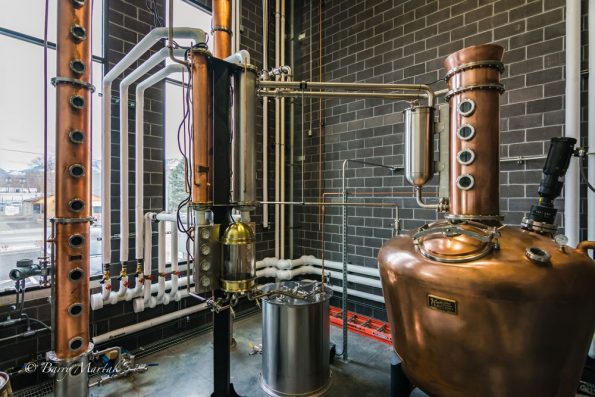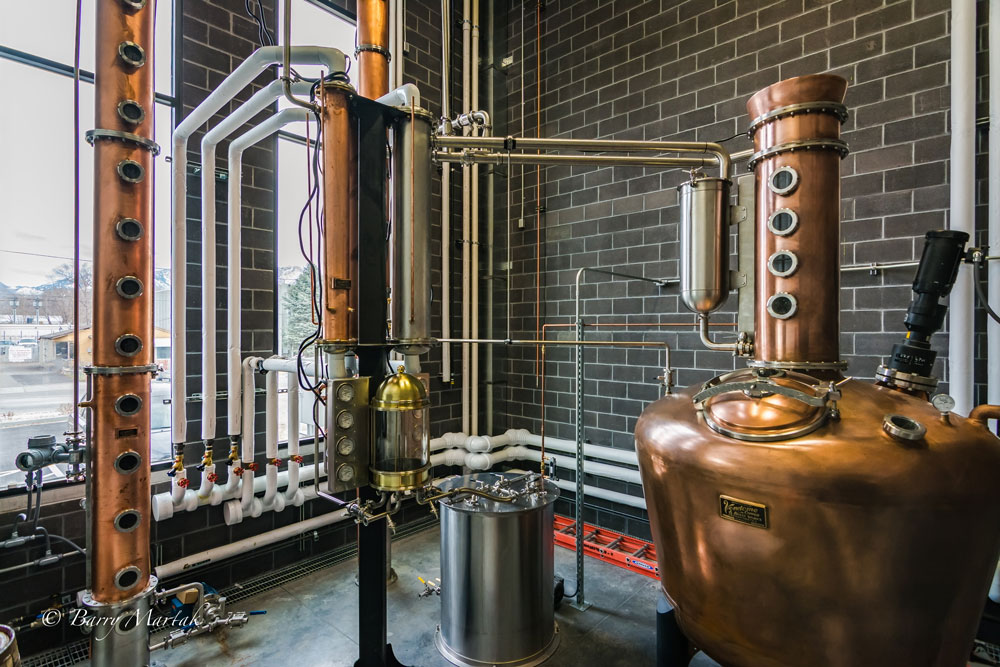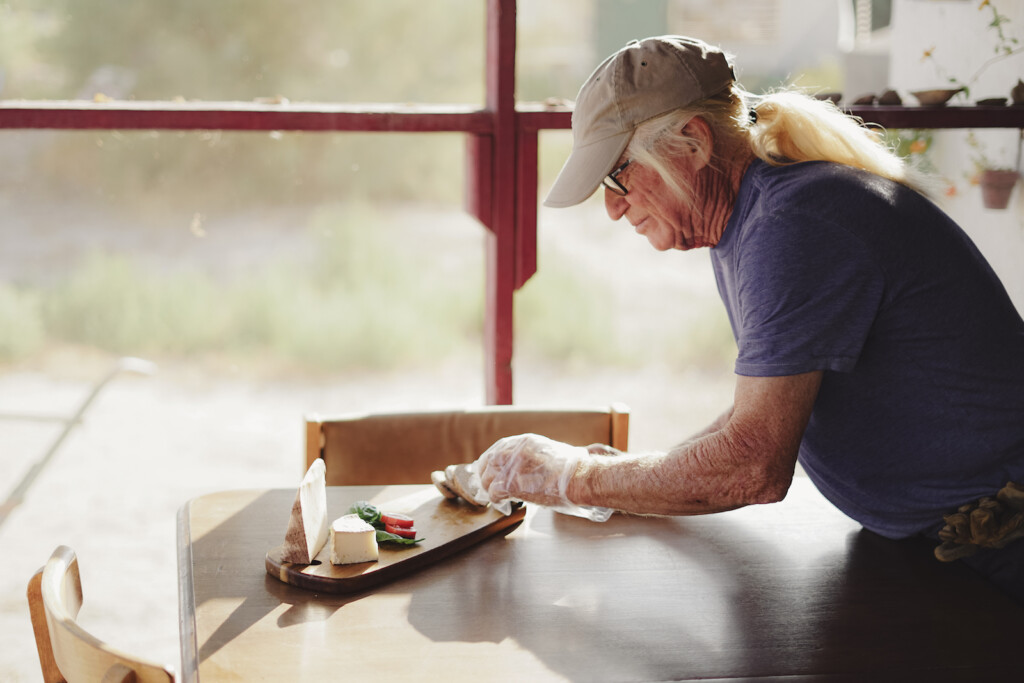
HB 228 was recently passed by the Utah Legislature and takes effect in July. The bill allows for tastings of beer, wine, and distilled alcohols with the added caveat of the inclusion of a “substantial” amount of food to be served with the up to 16-ounce taste, a definition that will be determined by the Utah Department of Alcoholic Beverage Control (DABC).
This change raises further concerns for brewers in regards to municipal zoning and health department food preparation requirements. Another clause in the bill is that tasting cannot be done in the presence of minors. In small tasting rooms, this could be an added obstacle.
And lastly, HB 228 will void the current Education Permit, as of December 31, 2016, that distilleries like Dented Brick and Sugar House Distillery currently operate under.
James Fowler, owner and distiller of Sugar House Distillery, says HB 228 has a lot of good intent; it was a way to help distilleries that did not have a way to offer tastings to do so.
“A group of people, industry wide, came together and had input on this. In the past the Utah wine industry could serve samples, they almost had no regulations, and so it was a very touchy thing whenever it was brought up to a winery; they did not want to be pulled into this,” Fowler said. “Even the breweries did not have as many restrictions that a distillery would have, our intent was to have everyone on the same level. A glass of beer is the same as a glass of wine or a glass with alcohol, etc. Everyone needed to be treated the same so that it worked for all us.”
The good thing about bringing the wineries into the conversation was the data that was provided that helped the cause. For example, the numbers of DUI’s given to patrons that left a winery after tastings, with no food served. The distilleries also have data on tastings under their education permit, which again proved to not be an issue of irresponsible customers.
Jay Yahne, owner of the Hive Winery, went to bat for the distilleries in the negotiations. He felt it was important to illustrate how the ability to taste a product sells the product.
“Our ability to taste is the only reason wineries have be able to stay in business because if people can’t taste it, they just assume it is not any good,” Yahne said. “The perception is that Utahn’s can’t make good products, most people won’t buy a Utah wine without being able to taste it. That being said, the distilleries were having problems selling to the public because they could not taste it. Sadly, now the wine industries have a lot more regulations to get back to where we once were. We now have to charge for tastings, we have a greater food requirement, we now have more expenses to allow us to taste again.”
The DABC has not released a statement yet on what substantial food entails. All entities that offer tastings are anxiously awaiting to see what this means for their business. According to Republican Rep. Gage Froerer, the bill’s chief sponsor, he has been quoted as saying that commitments have been made to him by the DABC that they will not overburden the industry with food requirements.
“Utah law has permitted breweries and wineries to allow tastings in their facilities for some time,” said Rep. Froerer. “The previous law was difficult to interpret for both the operators and enforcement because of the confusing language. HB 228 allowed distilleries to have tastings and creates a level playing field for all three industries that are easy to understand and enforce the provisions of the law. It brings all three industries together under one provision of the code for a better understanding of how they should operate when serving tastings of their individual products. They can now showcase their products in a controlled but user friendly manner.”
Ethan Miller, Head Distiller from Dented Brick says the bill does not affect them too much at this point. “We do have our educational permit and we do our educational tours and tastings and so far it won’t affect that. However we are not a food production facility so we are concerned with what the DABC says about the food part and how they are going to choose to enforce it, “ said Miller. “For us, food and liquor go hand in hand, so we see it as, if they force us to have some food, we will get creative about how to do that and make it happen. It is a challenge because it does add a cost, but it is good to see movement in our liquor laws.”






